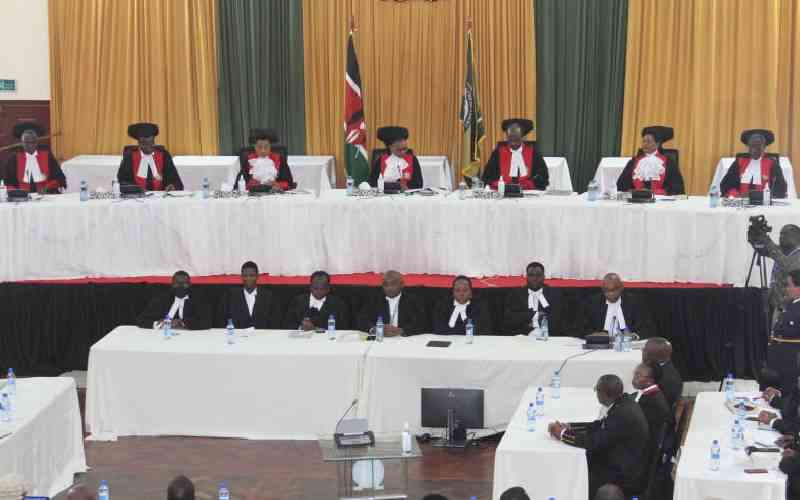×
The Standard e-Paper
Home To Bold Columnists

July last year, Harvard Law School Assistant Professor, Nikolas Bowie, wrote in the Washington Post an opinion headlined; "How the Supreme Court dominates our democracy'- Judicial review gives any five justices power over the whole government. Why?"
A recent Supreme Court of Kenya (SCOK) ruling on petitions challenging the August 9, 2022 election of William Ruto as president begs such a question. That seven judges of SCOK unanimously overturned the wishes of about seven million Kenyans raises fundamental questions.